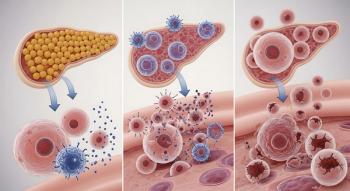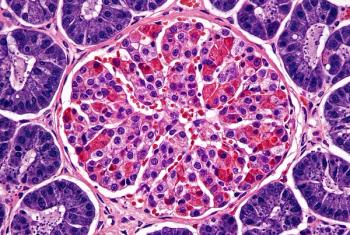
Diabetes Association Updates Guidelines for Type 1 Diabetes
The updated guidelines from the American Diabetes Association emphasize the use of antibody-based screening for type 1 diabetes and recommend that physicians discuss potential use of Tzield, a monoclonal antibody approved to delay the onset of the symptoms of the disease.
The American Diabetes Association has
Type 1 diabetes is an autoimmune disease that affects about 2 million Americans, about 5% to 10% of all diabetes cases, according to the Centers for Disease Control and Prevention (CDC). In type 1 diabetes, the immune system’s T cells destroy the insulin-producing beta cells. For patients with type 1 diabetes, the standard of care treatment has been insulin replacement.
American Diabetes Association provides annual updates to its guidelines for managing and treating patients with type 1 and type 2 diabetes.
“The latest ADA guidelines combine comprehensive, evidence-based recommendations for diabetes care with actionable guidance to enable health care professionals provide the best care possible for those living with diabetes,” Nuha El Sayed, M.D., MMSc, the ADA’s senior vice president of health care improvement, said in a news release.
In type 1 diabetes, the updated guidelines emphasize the use of antibody-based screening for presymptomatic type 1 diabetes in those who have a family history or known genetic risk.
As many as 40% of people with type 1 diabetes are unaware that they have the disease. Risk factors include having a parent or sibling with the disease. People of any age can get type 1 diabetes, but it usually develops in children, teens and young adults.
A blood test can be done to screen for autoantibodies, which are not present in people with type 2 diabetes. But there is an unmet need for a guidance on monitoring practices for at-risk patients, and there is a lack of information about the risk of disease progression in adults without a family history of type 1 diabetes who test positive for autoantibodies, according to the authors of a
Last year, Breakthrough T1D, along with 10 international diabetes organizations, developed a
“The development of the guidance fills an important clinical gap, creates a pathway to realize the benefits of early detection of type 1 diabetes, and can help improve outcomes for those who go on to develop stage 3 type 1 diabetes. It is vital that we continue to build momentum toward widespread implementation of the guidance,” Anastasia Albanese-O’Neill, Ph.D., associate vice president of Breakthrough T1D, told Managed Healthcare Executive last year.
The guidance also recommends that physicians discuss with patients eight of years age and older who stage 2 type 1 diabetes about the role of Tzield (teplizumab-mzwv) can play to delay the onset of symptomatic type 1 diabetes. Tzield is anti-CD3-directed antibody that was approved in November 2022. Developed by Provention Bio, which Sanofi acquired in April 2023, Tzield binds to the CD3 on T cells, deactivating the immune cells that attack the beta cells. Tzield has been shown to delay the onset of stage 3 type 1 diabetes by about two years.
Additionally, the updated American Diabetes Association guidance now includes recommendations that physicians advise patients with type 1 diabetes who are at risk for diabetic ketoacidosis (DKA) not use of recreational cannabis. Cannabis use can cause hyperemesis syndrome, which results in nausea, vomiting and abdominal pain after long-term use.
Although it is not known how common cannabis hyperemesis syndrome, one study found that almost one-third of people who were frequent marijuana users who came to the emergency room met the criteria. In people with diabetes, cannabis hyperemesis syndrome could result in diabetic ketoacidosis, a serious complication, where the body is not able to use sugar for energy. The liver will begin to break down fat for fuel, which produces acids called ketones.
Newsletter
Get the latest industry news, event updates, and more from Managed healthcare Executive.























